
Kabulonga: The Upscale Heart of Lusaka
Kabulonga is one of Lusaka's most prestigious neighborhoods, offering a blend of modernity and tranquility that makes it an ideal destination for tourists. Known for its lush greenery and spacious avenues, Kabulonga provides a serene backdrop for both relaxation and exploration. The area is home to numerous embassies and high-end residences, adding to its exclusive charm. For the shopping enthusiasts, Kabulonga boasts some of the city’s finest shopping centers. The Kabulonga Centro Mall and Crossroads Shopping Mall offer a variety of boutiques, cafes, and restaurants where you can indulge in both local and international cuisine. The malls are also an excellent place to find unique Zambian crafts and souvenirs. Nature lovers will appreciate the proximity to the Munda Wanga Environmental Park, which is just a short drive away. This park is a sanctuary for various native wildlife and offers beautiful botanical gardens. It’s a perfect spot for a leisurely afternoon surrounded by nature. Whether you're looking to explore local culture, enjoy fine dining, or simply unwind, Kabulonga has something for everyone. Its peaceful environment makes it a refreshing escape from the busier parts of Lusaka.
Local tips in Kabulonga
- Visit the Kabulonga Centro Mall for a mix of shopping and dining options.
- Don't miss the Munda Wanga Environmental Park for a nature escape.
- Explore local crafts and souvenirs at Crossroads Shopping Mall.
- Late afternoons are the best time to visit local parks, offering cooler temperatures and vibrant wildlife activity.
Kabulonga: The Upscale Heart of Lusaka
Kabulonga is one of Lusaka's most prestigious neighborhoods, offering a blend of modernity and tranquility that makes it an ideal destination for tourists. Known for its lush greenery and spacious avenues, Kabulonga provides a serene backdrop for both relaxation and exploration. The area is home to numerous embassies and high-end residences, adding to its exclusive charm. For the shopping enthusiasts, Kabulonga boasts some of the city’s finest shopping centers. The Kabulonga Centro Mall and Crossroads Shopping Mall offer a variety of boutiques, cafes, and restaurants where you can indulge in both local and international cuisine. The malls are also an excellent place to find unique Zambian crafts and souvenirs. Nature lovers will appreciate the proximity to the Munda Wanga Environmental Park, which is just a short drive away. This park is a sanctuary for various native wildlife and offers beautiful botanical gardens. It’s a perfect spot for a leisurely afternoon surrounded by nature. Whether you're looking to explore local culture, enjoy fine dining, or simply unwind, Kabulonga has something for everyone. Its peaceful environment makes it a refreshing escape from the busier parts of Lusaka.
Iconic landmarks you can’t miss
Centro Shopping Mall | Kabulonga
Explore the vibrant shopping and dining scene at Centro Shopping Mall in Kabulonga, Lusaka - a must-visit destination for every traveler.
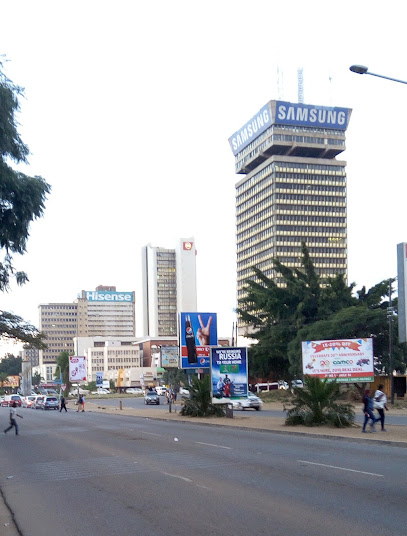
Official Kabwata Cultural Village Page
Experience the essence of Zambia at Kabwata Cultural Village, where art, culture, and heritage come alive in a vibrant and engaging atmosphere.
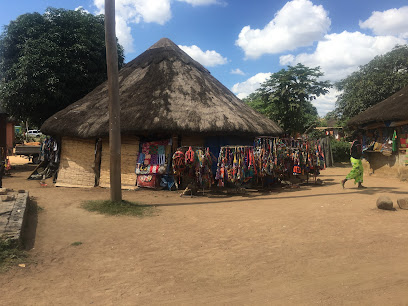
Kabulonga Shopping Centre
Experience the essence of Lusaka at Kabulonga Shopping Centre, where shopping, dining, and culture meet in a vibrant atmosphere.
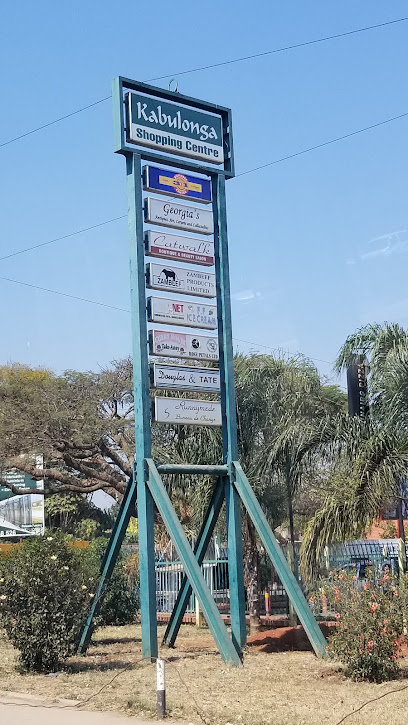
37d Gallery
Discover the rich tapestry of Zambian culture at 37d Gallery, a vibrant art destination in Lusaka showcasing local talent and creativity.
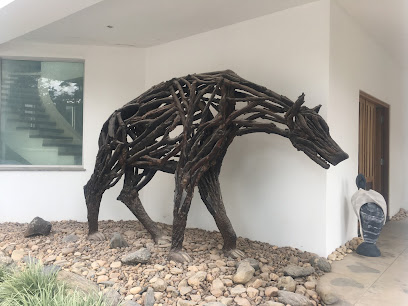
Shez Cafe & Art Gallery
Discover the perfect blend of culinary delights and vibrant local art at Shez Cafe & Art Gallery in Lusaka, a must-visit for every traveler.
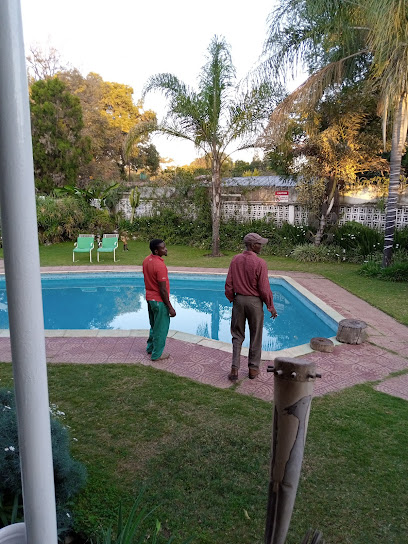
US Peace Corps
Explore the impactful role of the US Peace Corps in Zambia, a unique opportunity to understand volunteerism and community development.
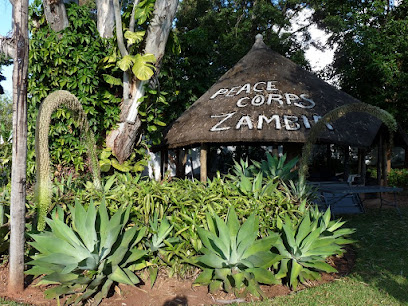
Kuweza-Kabulonga
Explore Kuweza-Kabulonga, Lusaka's premier event venue, where culture meets modernity in a vibrant social atmosphere.
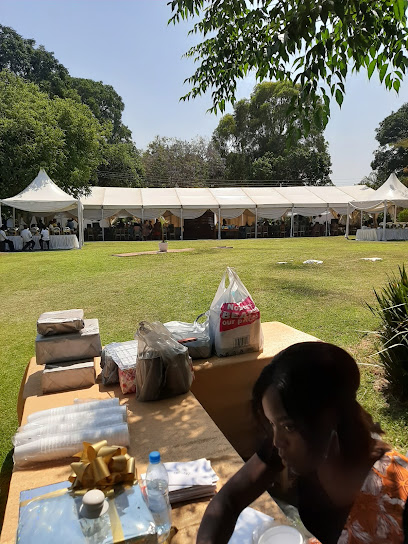
Kabulonga Roundabout
Discover the vibrant culture and community at Kabulonga Roundabout, a historical landmark in Lusaka that showcases the essence of Zambian life.
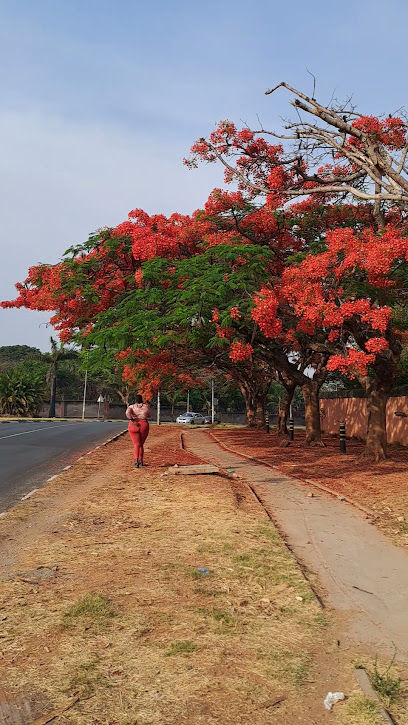
Longacres Roundabout
Discover Longacres Roundabout, a historical landmark in Lusaka that showcases the city's vibrant culture and offers a perfect starting point for local exploration.

Longacres Flyover Bridge
Explore the Longacres Flyover Bridge in Lusaka, where history meets modern architecture, offering stunning views and a unique perspective of the city.

Nicholas Hovstard House
Explore Nicholas Hovstard House, a serene park in Lusaka offering lush greenery and peaceful landscapes for a perfect escape from city life.

Zambia
Explore the breathtaking landscapes, rich wildlife, and vibrant cultures of Zambia – a hidden gem in Southern Africa.

Unmissable attractions to see
Leopards Hill Memorial Park
Discover the serene beauty and historical significance of Leopards Hill Memorial Park in Lusaka, a tribute to Zambia's heroes and heritage.
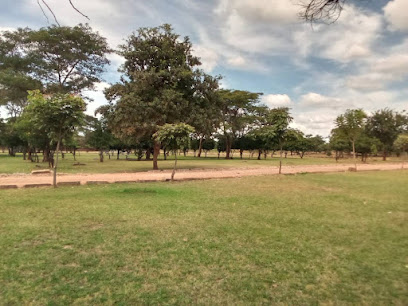
Classic Zambia Safaris
Experience the breathtaking wildlife and stunning landscapes of Zambia with Classic Zambia Safaris, a must-visit destination for nature lovers.
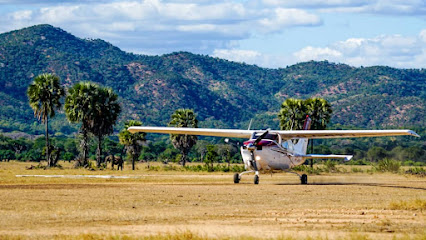
Alick Nkhata Bridge
Experience Lusaka's vibrant culture at Alick Nkhata Bridge, a stunning landmark that connects communities and offers breathtaking views of the city.

The Big Chicken
Discover the charm of Lusaka with a visit to The Big Chicken, a whimsical landmark that adds a playful touch to your travel experience.
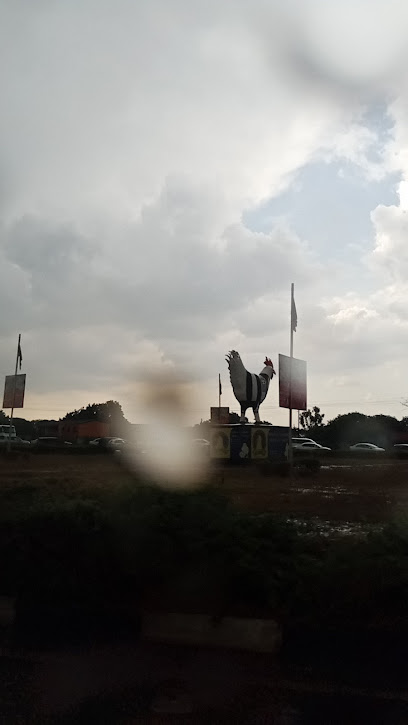
Zambia
Discover the natural beauty and cultural richness of Zambia, from the majestic Victoria Falls to vibrant local traditions and diverse wildlife.

Essential places to dine
Nando's Kabulonga
Experience authentic flame-grilled peri-peri chicken at Nando's Kabulonga - a culinary gem in Lusaka offering vibrant flavors in a family-friendly setting.
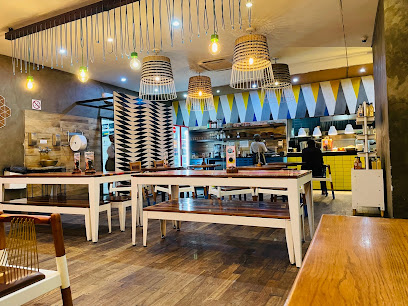
Turn n' Tender Steakhouse
Discover culinary excellence at Turn n' Tender Steakhouse in Lusaka, where every bite promises exceptional flavor and quality.
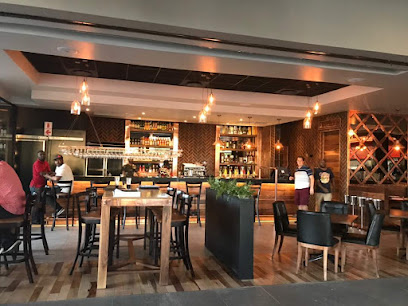
Istanbul Cafe & Restaurant
Discover authentic Turkish cuisine at Istanbul Cafe & Restaurant in Lusaka - where every meal is a celebration of flavors.
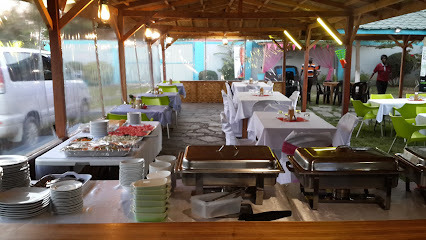
Siesta by Mint
Discover Siesta by Mint: A culinary haven in Lusaka offering exquisite local and international dishes in a vibrant setting.
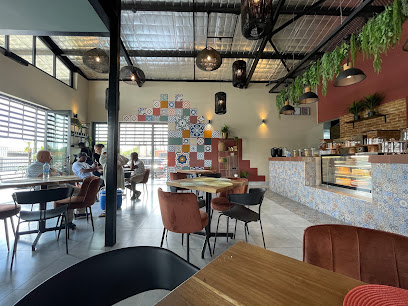
Shez Cafe & Art Gallery
Discover Shez Cafe & Art Gallery in Lusaka - where delicious food meets inspiring local art in a vibrant atmosphere.
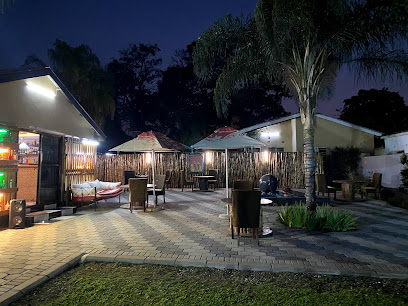
Mugg & Bean
Experience delightful meals and aromatic coffees at Mugg & Bean in Lusaka's vibrant Centro Mall - your cozy retreat in Zambia.
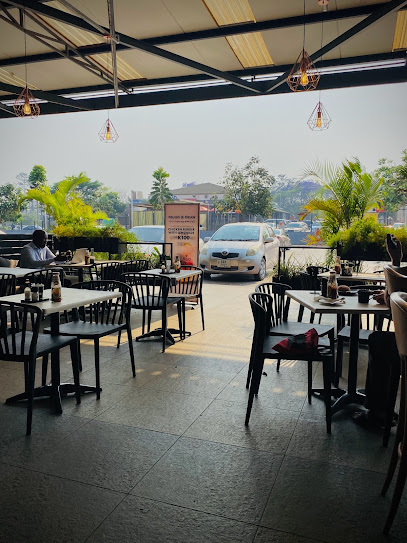
Mockys Kitchen
Experience family-friendly dining at Mockys Kitchen in Lusaka – where delicious food meets warm hospitality.
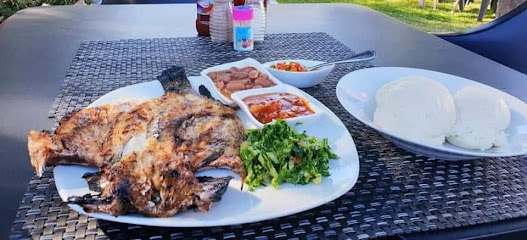
chopz n hopz multi cuisine restaurant and pub
Experience the flavors of Zambia at Chopz n Hopz, where multi-cuisine meets vibrant nightlife in the heart of Lusaka.

Subz Zambia
Discover exquisite Zambian cuisine at Subz Zambia - where local flavors meet international flair in a cozy setting.

TC Pub And Grill
Discover the authentic flavors of Zambia at TC Pub And Grill in Lusaka, where delightful dishes meet vibrant local culture.

Markets, malls and hidden boutiques
Pick n Pay | Centro Mall
Discover a shopping haven at Pick n Pay in Centro Mall, Lusaka – your go-to for local flavors and international favorites.
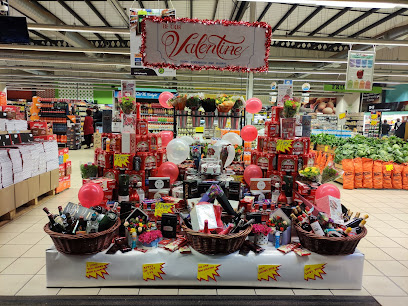
Woolworths | Centro Mall
Discover quality and variety at Woolworths in Centro Mall, your go-to department store in Lusaka for unique products and local flavors.
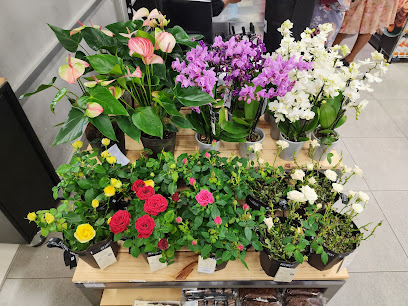
Urban Wear
Discover the latest urban styles at Urban Wear in Lusaka's Centro Mall, where fashion meets affordability in a vibrant shopping atmosphere.
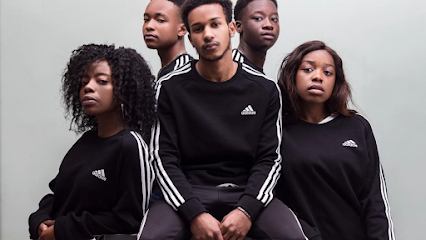
Knightsbridge Place | Centro Mall
Experience the best of shopping and dining at Knightsbridge Place | Centro Mall in Lusaka, where local culture meets modern convenience.
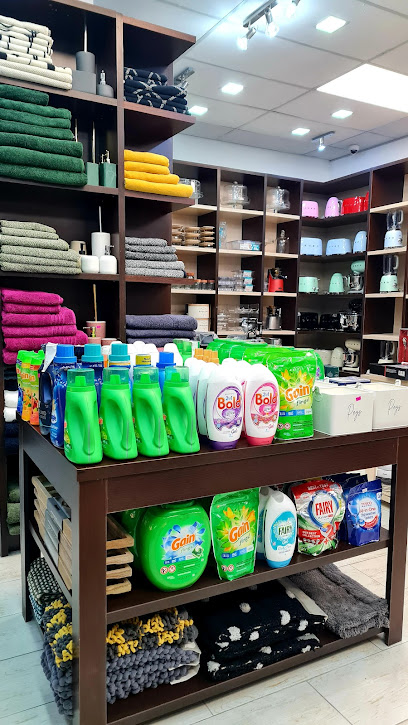
Blen Boutique
Discover the vibrant fashion scene at Blen Boutique, Lusaka’s premier clothing store showcasing local and international style.

Vonse Shop
Discover unique fashion at Vonse Shop, Lusaka's vibrant clothing store blending contemporary style with traditional Zambian flair.

Saranda
Explore Saranda, Lusaka's premier gift shop, featuring authentic Zambian souvenirs and unique handcrafted items that capture the spirit of Zambia.
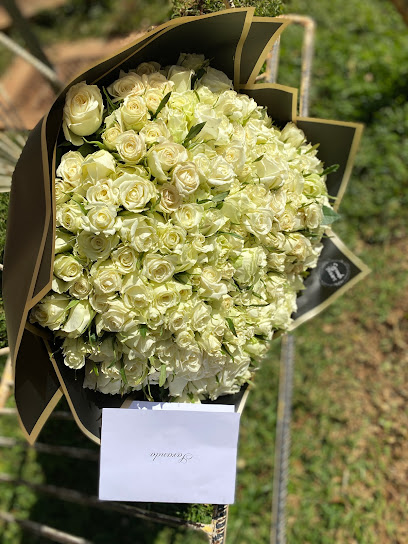
Prospect
Discover contemporary fashion and local designs in Lusaka at Prospect, your ultimate clothing store destination for unique style pieces.
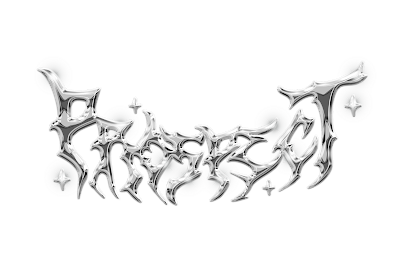
SunKissed Gift Shop
Explore the vibrant world of Zambian craftsmanship at SunKissed Gift Shop, where unique souvenirs and local culture come together.
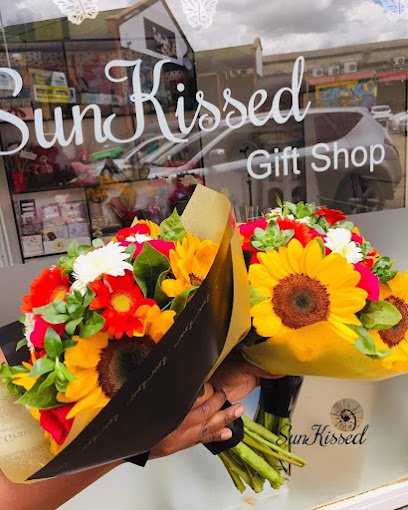
Gifts Galore and Floral Crescent
Discover unique Zambian gifts and floral arrangements at Gifts Galore and Floral Crescent, a vibrant shop in Lusaka's heart, perfect for souvenirs.

Essential bars & hidden hideouts
Turn n' Tender Steakhouse
Experience the best steaks in Lusaka at Turn n' Tender Steakhouse, where flavor meets quality in a welcoming atmosphere.
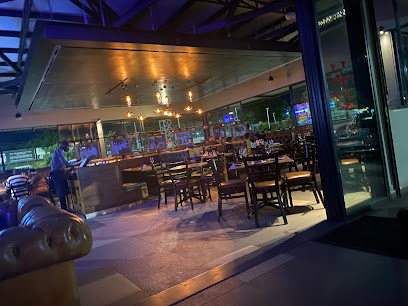
The Hangover Pub n Grill
Discover the vibrant nightlife at The Hangover Pub n Grill in Lusaka, where delicious food and refreshing drinks meet a lively atmosphere.
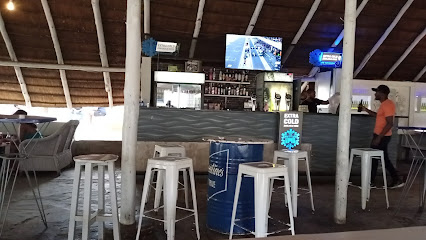
Heritage Bar & Restaurant
Experience the rich flavors of Zambian cuisine at Heritage Bar & Restaurant, a top grill destination in Lusaka for tourists and locals alike.
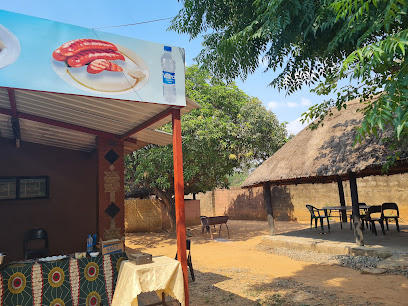
The Hot Spot
Discover Lusaka's nightlife at The Hot Spot, where great drinks, live music, and a vibrant atmosphere come together for an unforgettable evening.
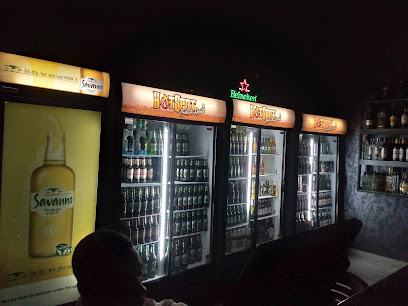
Bodega…
Discover Bodega, Lusaka's go-to cocktail bar, where handcrafted drinks and a lively atmosphere await every visitor.
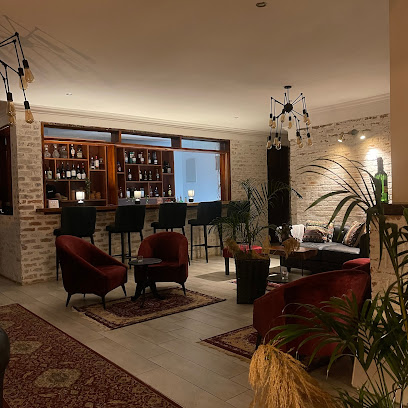
Eighties Lounge Kabulonga
Discover the vibrant nightlife and delicious cuisine at Eighties Lounge Kabulonga, a premier grill and night club in Lusaka's Tukunka Mall.
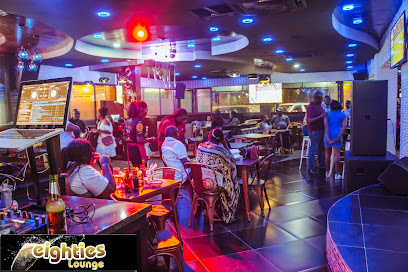
Shardonnay Wine Bar
Experience exquisite wines and a cozy atmosphere at Shardonnay Wine Bar in Lusaka, the perfect blend of relaxation and sophistication.
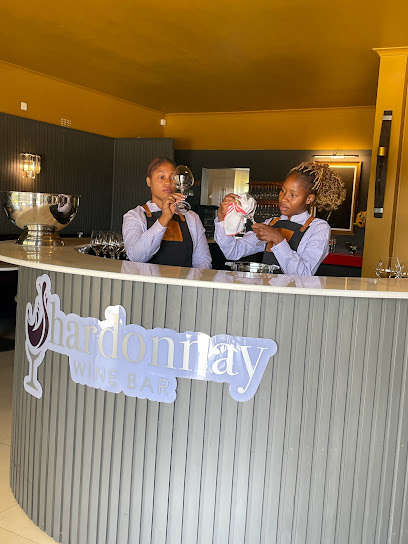
chopz n hopz multi cuisine restaurant and pub
Discover the diverse culinary delights of Chopz n Hopz, a top multi-cuisine restaurant and pub in Lusaka, blending local flavors with global inspirations.

Aha temba
Discover the flavors of Zambia at Aha temba, a top grill restaurant in Lusaka, where local ingredients meet culinary expertise.

MidnightClub Pub and Grill
Discover the vibrant nightlife of Lusaka at MidnightClub Pub and Grill, where delicious food and drinks meet lively entertainment.

Local Phrases
-
- HelloShani
[Sha-nee] - GoodbyeKabotu
[Ka-boh-too] - YesEe
[Ee] - NoAwe
[A-weh] - Please/You're welcomeTafadhali
[Ta-fa-dha-lee] - Thank youZikomo
[Zee-koh-moh] - Excuse me/SorryPepani
[Pe-pa-nee] - How are you?Muli bwanji?
[Moo-lee bwaan-jee] - Fine. And you?Bwino. Ndiwe?
[Bwee-no. Ndee-weh] - Do you speak English?Mukufuna kutchula chingerezi?
[Moo-koo-foo-na koo-choo-la cheen-ge-reh-zee] - I don't understandSindikudziwa
[Seen-dee-koo-zee-wah]
- HelloShani
-
- I'd like to see the menu, pleaseNdakufuna kuyembekeza menu, chonde
[Nda-koo-foo-na koo-yem-beh-keh-zah meh-noo, chon-deh] - I don't eat meatSindidya nyama
[Seen-dee-dyah nyah-mah] - Cheers!Mwabuka!
[Mwah-boo-kah!] - I would like to pay, pleaseNdimafuna kuyipa, chonde
[Ndee-ma-foo-na koo-yee-pah, chon-deh]
- I'd like to see the menu, pleaseNdakufuna kuyembekeza menu, chonde
-
- Help!Chitani chidziwike!
[Chee-ta-nee chee-dzee-wee-keh!] - Go away!Yenda kuwononga!
[Yen-dah koo-wo-non-gah!] - Call the Police!Pangani zambiri!
[Pan-gah-nee zam-bee-ree!] - Call a doctor!Pangani daktari!
[Pan-gah-nee dak-tah-ree!] - I'm lostNdili ndisowa
[Ndee-lee ndee-soh-wah] - I'm illNdimakhalidwa
[Ndee-ma-kha-lee-dwah]
- Help!Chitani chidziwike!
-
- I'd like to buy...Ndimafuna kudula...
[Ndee-ma-foo-na koo-doo-lah...] - I'm just lookingNdimakhala pansi
[Ndee-ma-kha-la pan-see] - How much is it?Iyi ndi zingati?
[Ee-yee ndee zin-gah-tee?] - That's too expensiveIyi ndi chabe
[Ee-yee ndee cha-beh] - Can you lower the price?Mukhoza kuchotsera ndalama?
[Moo-kho-zah koo-cho-tseh-rah ndah-la-mah?]
- I'd like to buy...Ndimafuna kudula...
-
- What time is it?Izi ndi nthawi yanji?
[Ee-zee ndee un-tha-wee yan-jee?] - It's one o'clockNdi nthawi yotsiku
[Ndee un-tha-wee yo-tsee-koo] - Half past (10)Ndi nthawi yotsiku nambiri
[Ndee un-tha-wee yo-tsee-koo nam-bee-ree] - MorningUsiku
[Oo-see-koo] - AfternoonMawa
[Ma-wah] - EveningMawa
[Ma-wah] - YesterdayLero
[Leh-roh] - TodayLero
[Leh-roh] - TomorrowMawa
[Ma-wah] - 1Moja
[Moh-jah] - 2Mbiri
[Mbee-ree] - 3Tatu
[Tah-too] - 4Nai
[Nah-ee] - 5Sanu
[Sah-noo] - 6Nemba
[Nem-bah] - 7Walonzo
[Wah-lon-zoh] - 8Walonzo
[Wah-lon-zoh] - 9Pinda
[Peen-dah] - 10Kumi
[Koo-mee]
- What time is it?Izi ndi nthawi yanji?
-
- Where's a/the...?Kuikilani...?
[Kwee-kee-lah-nee...?] - What's the address?Adilesi yikani?
[Ah-dee-leh-see yee-kah-nee?] - Can you show me (on the map)?Mukhoza kundikwera (pa map)?
[Moo-kho-zah kun-dee-kweh-rah (pah map)?] - When's the next (bus)?Nthawi yomweyo (bus) ndi liti?
[Un-tha-wee yom-weh-yoh (bus) ndee lee-tee?] - A ticket (to ....)Kutikiti (ku ....)
[Koo-tee-kee-tee (koo ....)]
- Where's a/the...?Kuikilani...?
History of Kabulonga
-
Kabulonga, situated in Lusaka, was established during the colonial period of Zambia in the early 20th century. Initially developed as a residential area for expatriates and government officials, it reflects the urban planning ideologies of the time, featuring spacious plots and green spaces. The name 'Kabulonga' is thought to derive from the local Bemba language, implying a connection to the area's indigenous roots.
-
Following Zambia's independence in 1964, Kabulonga underwent significant changes as the government sought to provide housing for a growing middle class. The neighborhood became a symbol of the new nation's aspirations, with developments that included schools, churches, and community centers. This period saw a diversification of its demographics as more Zambians moved in, contributing to a blend of cultures and traditions.
-
Kabulonga has evolved into a vibrant cultural melting pot, embodying the rich tapestry of Zambian life. The neighborhood is home to various cultural institutions, including art galleries and cultural centers that promote local artists and heritage. The influence of diverse ethnic groups is evident in the culinary offerings, markets, and festivals celebrated throughout the year.
-
The late 20th and early 21st centuries marked a period of rapid urbanization and economic growth for Kabulonga. The rise of small businesses and shopping centers has transformed the area into a commercial hub. This development has attracted both local and international investments, enhancing the neighborhood's infrastructure and services, making it one of the more affluent areas in Lusaka.
-
In recent years, Kabulonga has seen a rise in community-driven initiatives aimed at promoting sustainability and environmental awareness. Residents have engaged in projects focused on urban gardening, waste management, and local conservation efforts, reflecting a growing consciousness about environmental issues. These initiatives not only contribute to the beautification of the area but also foster a strong sense of community among residents.
Kabulonga Essentials
-
Kabulonga is easily accessible from other neighborhoods in Lusaka. If you're coming from the city center, you can take a taxi or an Uber, which will take approximately 15-20 minutes, depending on traffic. Public minibuses (locally known as 'chibuku') also operate routes to Kabulonga, departing from designated bus stops in the city center. For those arriving from Kenneth Kaunda International Airport, taxis are available, and the journey to Kabulonga typically takes around 30-40 minutes.
-
Kabulonga is a relatively small neighborhood, making it easy to explore on foot. However, for longer distances, local transport options include taxis and ride-sharing services like Uber. Public transportation via minibuses is available but may be less comfortable for tourists unfamiliar with the local system. Cycling is also a great option, and bike rentals can be found at some local shops.
-
Kabulonga is generally considered a safe neighborhood for tourists, but standard precautions should still be taken. Avoid walking alone at night, especially in poorly lit areas. High-crime areas to be cautious of include parts of the nearby neighborhoods of Matero and Chawama. Always keep your belongings secure and be aware of your surroundings, especially in crowded places.
-
In case of an emergency, dial 112 for police assistance or 999 for ambulance services. Be sure to have the contact information of your country's embassy in Zambia handy. Local hospitals and clinics are available in Lusaka, with some in Kabulonga providing general healthcare services. It's advisable to have travel insurance that covers emergencies, including medical care.
-
Fashion: Do dress modestly, particularly when visiting religious sites. Don't wear revealing clothing or overly casual attire in upscale areas. Religion: Do respect local customs, and when visiting churches, cover your shoulders and knees. Public Transport: Do give your seat to the elderly and pregnant women. Don't eat or drink on public transport. Greetings: Do greet locals with a handshake, and a smile is always appreciated. Eating & Drinking: Do try local dishes, especially at street vendors. Don't refuse food or drink offered to you, as it is considered impolite.
-
To experience Kabulonga like a local, visit local markets such as the Kabulonga Market, where you can find fresh produce and crafts. Engage in conversation with local vendors; they often have stories to tell and may offer you samples of their goods. Consider taking part in community events or local festivals if your visit coincides with them for a more immersive experience.
Nearby Cities to Kabulonga
-
Things To Do in Kabwe
-
Things To Do in Kariba
-
Things To Do in Ndola
-
Things To Do in Kitwe
-
Things To Do in Chinhoyi
-
Things To Do in Livingstone
-
Things To Do in Hwange
-
Things To Do in Victoria Falls
-
Things To Do in Harare
-
Things To Do in Solwezi
-
Things To Do in Kasane
-
Things To Do in Gweru
-
Things To Do in Katima Mulilo
-
Things To Do in Chipata
-
Things To Do in Nyanga







